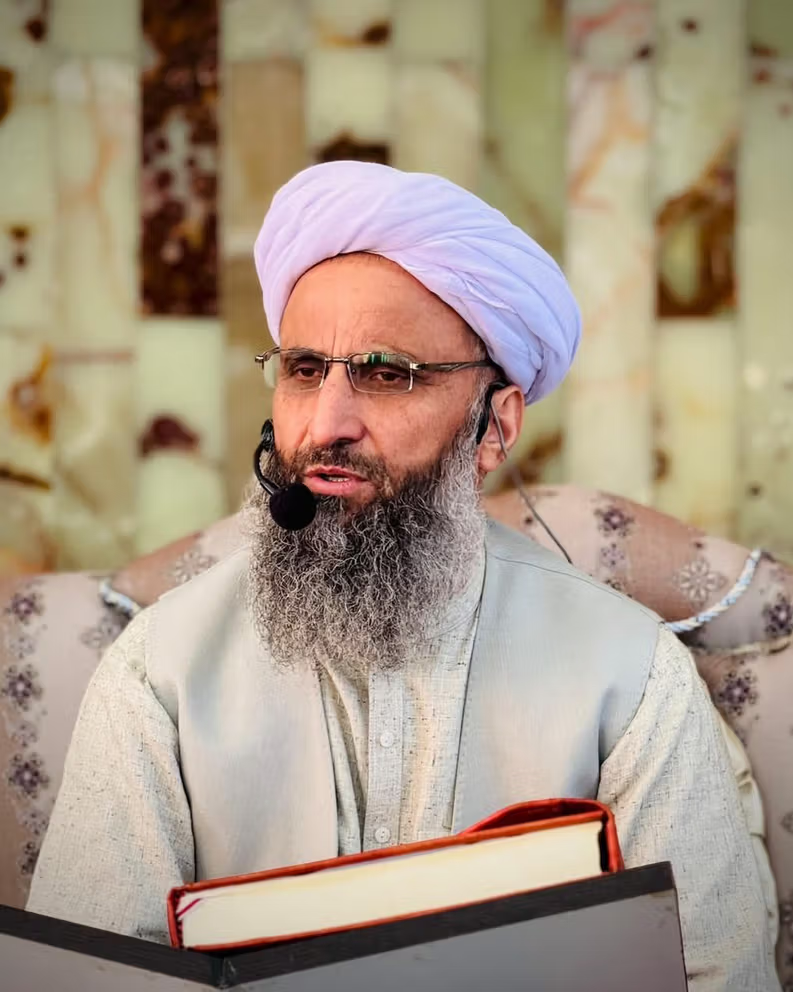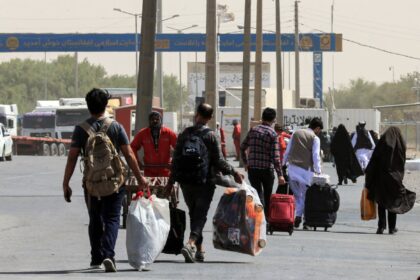RASC News Agency: The Taliban has reportedly exerted severe pressure on Mawlawi Abdul Qahir, the influential preacher of Rawza Sharif Mosque in Balkh province, following a bold Friday sermon in which he denounced the regime’s ethnocentric policies and accused it of deep-rooted tribal discrimination. According to local sources, senior Taliban officials attempted to detain the cleric after his sermon, but were met with public resistance that thwarted the arrest an incident that exposed growing unrest among the population toward the Taliban’s authoritarian grip over Afghanistan’s religious landscape. Eyewitnesses confirmed that Taliban operatives stormed the historic mosque shortly after the Friday prayers, with the clear intent of detaining Mawlawi Qahir. However, dozens of congregants intervened, forming a human shield around the cleric and forcing the Taliban to retreat. The rare public act of defiance served as a powerful demonstration of solidarity against a regime increasingly viewed as illegitimate and oppressive by large segments of Afghanistani society.
In response to the widespread dissemination of Mawlawi Qahir’s sermon on social media, the Taliban’s notorious Department of Vice and Virtue swiftly summoned leading clerics in Balkh. During a closed-door session, officials reportedly issued a gag order forbidding religious leaders from recording or broadcasting Friday sermons an unmistakable attempt to stifle dissent and suppress public awareness of the regime’s inner fractures. In his sermon, Mawlawi Qahir did not mince words. He condemned the Taliban’s systematic marginalization of non-Pashtun communities and urged the group to abandon its policy of ethnic exclusion. He emphasized the importance of justice and fairness in governance, warning that no regime built on repression and injustice can sustain itself. “With suicide bombings and car bombs, one may occupy land,” he previously said at a Taliban-organized Loya Jirga, “but hearts are not conquered by fear.”
This is not the first time Mawlawi Qahir has challenged the Taliban’s ideology. A rare voice of independent moral authority, he has repeatedly criticized the regime’s manipulation of religious institutions for political ends. His outspokenness has made him a symbolic figure in the broader resistance against Taliban authoritarianism particularly among Afghanistan’s religious moderates, intellectuals, and ethnic minorities who have long borne the brunt of the group’s Pashtun-dominated governance. Since the Taliban’s return to power in August 2021, the group has launched an aggressive campaign to dominate Afghanistan’s religious infrastructure. Independent clerics have been ousted or silenced, and loyalists installed in mosques across the country. Friday sermons have increasingly become platforms for Taliban propaganda, rather than spaces for critical thought or moral reflection. Yet, despite this campaign of ideological control, figures like Mawlawi Qahir have managed to carve out pockets of resistance often at great personal risk.
Human rights observers note that the Taliban’s treatment of clerics mirrors its broader strategy of silencing dissent across all sectors of society. Journalists, women activists, educators, and ethnic minority leaders have been harassed, detained, and in many cases forced into exile. The regime’s response to criticism has been marked by systematic violence, intimidation, and the wholesale dismantling of civil society. Over the past four years, the Taliban has imposed severe restrictions on fundamental freedoms banning peaceful assembly, gagging the free press, dismantling academic independence, and turning mosques into surveillance zones. In doing so, it has transformed Afghanistan’s once-vibrant public sphere into a climate of fear and forced conformity.
The case of Mawlawi Abdul Qahir lays bare the Taliban’s inherent contradictions: a group that claims to uphold Islamic values yet silences clerics who preach justice; a regime that demands obedience in the name of faith while betraying the moral tenets of that very faith. By attempting to suppress his voice, the Taliban inadvertently amplified it making his sermon not just a message to Balkh, but a clarion call for all Afghanistanis yearning for a future rooted in dignity, equality, and truth.






